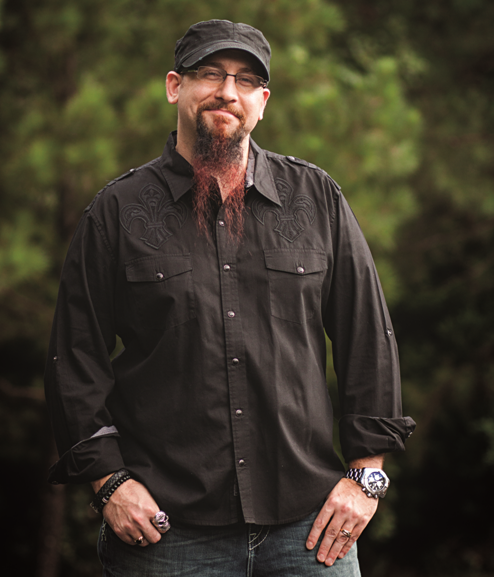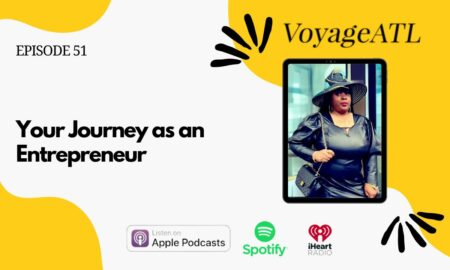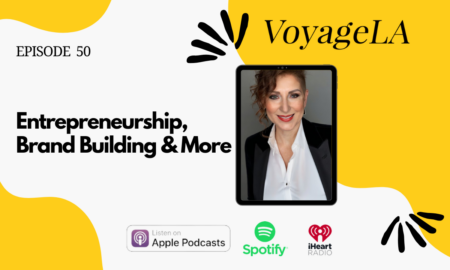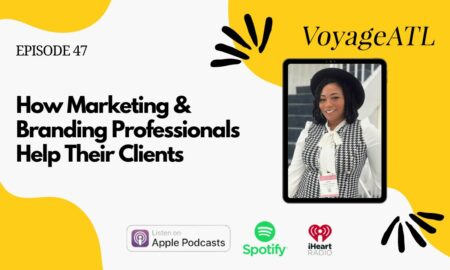

Today we’d like to introduce you to Jon Bodan.
Jon, let’s start with your story. We’d love to hear how you got started and how the journey has been so far.
I started my career in banking in 1994 when I was in college as a peak-time teller at First Union National Bank (since then it became Wells Fargo). I worked my way up rapidly and wrote my first mortgage loan for a client at 19, and obtained my securities licenses at 21. My position at the time was kind of a hybrid – I did banking, commercial banking, lending, and investments/insurance.
I became a top performer pretty much right away because I was very motivated to succeed, and ultimately worked there for about 8 years. My last day was 9/11, which was a pretty surreal day for me to be leaving the only “adult” job I had ever known.
Part of my duties were doing home equity loans for mortgage brokers, and I was kind of feeling the need to move on. One company in particular recruited me very heavily and after about 6 months I finally gave in and made the move. That’s how I got into the mortgage industry, as opposed to retail banking.
However, I quickly found out that the owner of the company wasn’t really the owner – he was running it because he had the experience, but he had a felony on his record so legally couldn’t work in the business. His mother owned the company, and his wife signed off on all the deals he did. Then I observed staff going out and doing lines of coke on breaks, and it took me about a week in the office to go work from home. I had to stay there for 6 months because I’d negotiated a signing bonus that I would have had to pay back.
After 6 months and one day, I left and joined a larger company and was promised a branch to run and so forth. After a couple of months, this didn’t come to fruition, and after seeing some other activity and behaviors that I couldn’t live with I basically said to myself “if these clowns can do this, so can I”. So in 2002, I founded my company and haven’t looked back since.
Obviously, the mortgage and real estate industries have had some serious ups and downs, but we have made it through all of them and are stronger than ever. Our model is to grow and operate “old school” – meaning that we work based off of referrals, repeat clients, and personal networking as opposed to doing online marketing or radio ads or things like that. For this reason, we stay fairly under the radar but have a platform easily rivaling companies 10x our size.
In 2010, we became a correspondent lender, which means that we fund our own transactions and sell the loans on the secondary market to our pool of investors. We also obtained our FHA Full Eagle which means that we are HUD approved to offer FHA programs to borrowers as the lender, and we don’t have to broker any of our business. The difference between being a mortgage banker, which is what we are, and a mortgage broker is substantial in this lending environment. It enables us to make decisions in-house, and to operate far more quickly. I like to describe what we do is “operating at entrepreneur speed” as opposed to “operating at bank speed”. I’m very proud of the platform and culture we have built here, and our clients and realtor partners love us.
Overall, has it been relatively smooth? If not, what were some of the struggles along the way?
The mortgage business has been full of ups & downs since we opened 15 years ago. It certainly hasn’t been a smooth road the whole time.
When we started, it was the middle of a refinance boom, fueled by low rates that were the result of the economic uncertainty from 9/11. Then it moved to a purchase market that was inflated, as we all know, by the subprime money out there on the streets and relatively unqualified borrowers being able to get financed.
Thankfully we were never really in the subprime space – we did very few of those loans – so when that bubble popped it didn’t put us out of business like so many others. In our office complex, our next 2 neighbors were mortgage companies that went out of business. Between the market bust and the passage of the SAFE Act in 2009 which required mortgage loan officers to become individually licensed, there was a 90% license fallout rate in Georgia. We were able to make it through that difficult time, and that gained us a lot of credibility because we knew how to navigate clients through a nearly impossible lending environment. Guidelines, even on the basic loan programs such as Conventional and FHA, were so torqued up from around 2008-2011 that it was a Gordian Knot to get even highly qualified buyers’ deals done, but we made it happen.
The next struggle I faced was that in late 2010 I found out that I had Stage 2 Non-Hodgkins Lymphoma. I went through 7 rounds of chemotherapy and ultimately had a stem cell transplant in May of 2011. I’m happy to say that I am nearly 6 years all clear, but that experience was certainly life-changing. My staff ran the business while I was on medical leave during that time, and I went back to work in 2012.
Since then, we have worked very hard to build great systems and a strong reputation in our area and industry, and our sales revenue is up almost 500% since then.
Alright – so let’s talk business. Tell us about The Perpetual Financial Group, Inc. – what should we know?
As you can tell, our primary focus is residential real estate lending. That could be for a first time homebuyer, a doctor buying a mansion in Buckhead, someone buying a teardown in East Atlanta, a high-rise condo in Midtown. We do refinance loans as well – sometimes to reduce the rate someone is paying, sometimes to pay it off sooner, sometimes to pull cash out of the property for renovations or a debt restructure.
Ultimately, what we do is advisory-based. We treat our business the same way a CPA or Financial Advisor does; it’s a practice, not a sales business. So we advise our clients on the big-picture ramifications of what they’re about to do.
Mortgages have been commoditized in a lot of ways – the internet lenders of the world market ‘simplicity’ and ‘cheap’ and so forth – always pushing low rates or whatever the flavor of the month is. Our approach is much more holistic, in the sense that we ask clients what they want to accomplish financially, and then we back into the appropriate recommendations for them. Sometimes that’s a fairly vanilla loan – sometimes we really get into the weeds with them and get really creative and advanced.
I think overall we’re known as educators and advisors – because really, taking out a $350,000 mortgage is probably the biggest financial product most people will ever buy – so we believe that it needs to be treated with a commensurate amount of respect.
Value isn’t always quantifiable in a rate or something like that – you can go online and get something cheap done, but if you buy the wrong thing you have wasted the money.
And even though we embed these different principles into our approach with our clients, we don’t really charge anything more than our competitors. But we do that so we can maintain and grow our relationships. And that’s ultimately what it’s really about.
Beyond that, people really expect their mortgage lender to be some kind of suit-and-tie stuffy banker. That’s not who we are. I’ve got a Mohawk and a 10 inch goatee, and play in a metal band. My band is called Halcyon Way, and we’ve been all over the world and are getting ready to release our 5th album. We’re fun to deal with. We have a good time and try not to make the process like going to a funeral. Since most of our business is over the phone/email/etc. these days, I don’t get to meet people until the closing, and it never gets old seeing their eyes bug out a little if they didn’t see my picture beforehand, haha.
I also serve on the Board of Directors of the Atlanta Cancer Care Foundation. The Foundation is a local non-profit organization and we donate funds to cancer patients while they’re in treatment and in the aftermath of it to help them pay their bills. We’ve paid rent, gotten homes out of foreclosure, fixed cars, paid utilities, and helped families address pretty much any kind of financial hardship you can imagine. It’s important work and I’m glad to be able to give back in that way.
Any shoutouts? Who else deserves credit in this story – who has played a meaningful role?
Really, I think you have to give credit to everyone that surrounds you – you don’t live on an island. I’ve worked very hard over the years, as have most entrepreneurs, to build the company to where it is. But I have to give thanks to my wife, my family and friends, our fantastic clients and advocates out there, and my great staff for helping as well.
Contact Info:
- Address: 1838 Old Norcross Road
Suite 400
Lawrenceville, GA 30044 - Website: www.theperpetual.com
- Phone: 770-972-4955
- Email: info@theperpetual.com
- Facebook: www.facebook.com/theperpetualfinancialgroup






















